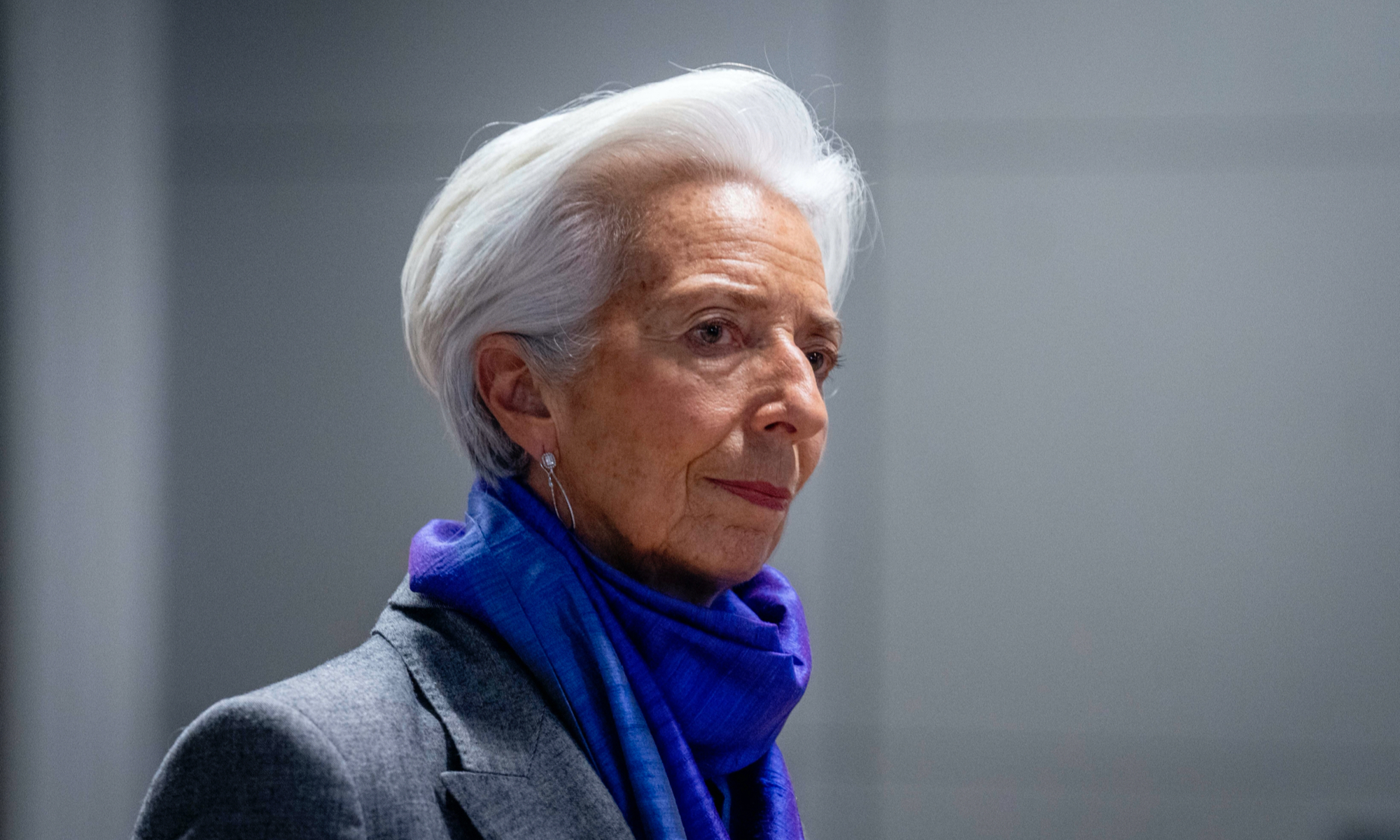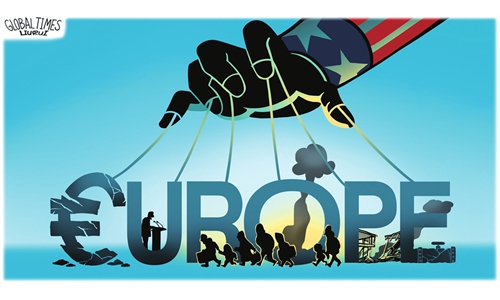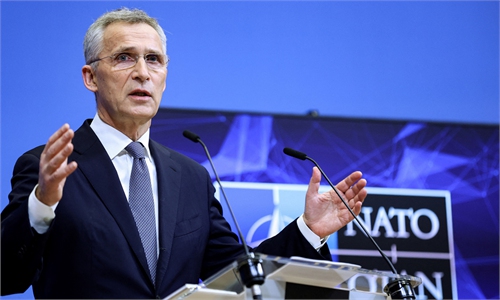Lagarde attempts to pass the buck of incapability to address EU economic plights to China

President of European Central Bank Christine Lagarde Photo: VCG
China's decision to change its COVID-19 policy and reopen its economy will increase inflation in Europe as they both compete for more energy, Christine Lagarde, president of the European Central Bank, said during a Davos panel on Friday, according to CNBC.
It is astonishing to see that an economist like Lagarde has begun to talk about the economy from the perspective of politics. She should be well aware of whether the EU's record-high inflation has anything to do with China. Her point of view is not so much an economic analysis as a political hype, and it is believed that she herself does not believe in this logic, Yang Xiyu, a senior research fellow at the China Institute of International Studies, told the Global Times.
Some observers say to some extent, Lagarde is attempting to weaponize and politicize the economic matters, in a bid to cater to the political correctness of the US and some Western countries to discredit China's image through various topics. Such intention is inappropriate.
There are obvious loopholes in this narrative. According to Lagarde's logic, if China continued its dynamic zero-COVID policy, would Europe's high inflation disappear? The root of the EU's inflation surge is not whether the Chinese economy slows down or steps up. Before China optimized its COVID-19 policy in December, Europe had already been hit by the 41-year high inflation. This further proves that the high inflation in Europe has nothing to do with the Chinese economy.
Instead, the fundamental trigger of Europe's soaring prices is the structural contradictions of the European economy. The structural problems left over from the 2008 financial crisis and the European debt crisis are far from being healed.
Furthermore, factors such as Washington's rounds of QE, the ongoing conflict between Russia and Ukraine, as well as the coronavirus pandemic, have intensified Europe's structural contradictions. It can be concluded that the EU's high inflation wasn't accumulated in a short period of time.
Analysts across the world are not optimistic about the European economy in 2023, arguing that it will encounter more uncertainties. The IMF said in October that "[Europe's] winter 2022 will be challenging, but the winter of 2023 will likely be worse."
Yang noted that at a time when the EU is far from seeking out an approach to effectively address its high inflation, it sees China as a scapegoat to pass the buck to. Her rhetoric in this regard is mainly out of political considerations. In some Western-style democratic countries, there has never been a purely economic policy, or a purely professional policy, and political considerations must be taken into account for every decision.
The EU is a big supplier of high-tech products. Unfortunately, due to following the US' lead in recent years, a rising pile of its high-tech products have set restrictions to China. That is to say that the trade between China and Europe is increasingly impacted by political factors, and as a result, the role of market is getting weaker. In dealing with China, the EU tends to be more dominated by political doctrine, instead of market rules.
In the context of globalization, the economy of every country is highly integrated. The whole world acknowledges that China is a global growth engine and a major growth contributor. Thus, China's reopening of its borders is a much-needed boost to the sluggish world economy.
In recent years, the US, as well as some Western countries, always intend to use China as a scapegoat for most problems they confront. This violates the basic principles of fairness and justice in the handling of international relations. It is not conducive to reshaping the current international structure along a sound and stable path.
Notably against the background that the international community is facing mounting common threat and challenges, such as economic slowdown and climate change, their approach of passing the buck to China is negative to global solidarity, and will undoubtedly bring remarkable challenges for the international community in tackling these problems.
The author is a reporter with the Global Times. opinion@globaltimes.com.cn



